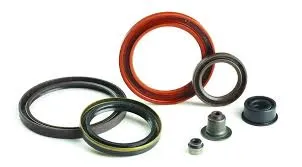10 月 . 10, 2024 03:42 Back to list
mechanical gasket
Understanding Mechanical Gaskets Importance, Applications, and Types
Mechanical gaskets play a pivotal role in various industrial applications, serving as essential components that ensure the integrity and efficiency of systems where fluids and gases are involved. By providing a leak-proof barrier between two mating surfaces, gaskets prevent the escape of dangerous substances, thereby safeguarding machinery, enhancing performance, and ensuring safety in operations. This article will delve into the importance of mechanical gaskets, their various applications, and the types of gaskets commonly used in different industries.
The Importance of Mechanical Gaskets
Mechanical gaskets are crucial in preventing leakage, which can lead to significant operational failures, environmental hazards, and safety risks. In many applications, even minuscule leaks can result in substantial financial losses and damage to equipment. Gaskets ensure that joints remain sealed under various conditions, including high pressure, high temperature, and exposure to aggressive chemicals.
Another critical aspect of mechanical gaskets is their ability to absorb vibrations and thermal expansions between components, which helps maintain the integrity of machines. This is particularly important in industries such as automotive and aerospace, where components experience continuous motion and temperature fluctuations. By providing flexibility and adaptability, gaskets contribute to the longevity and reliability of machinery.
Applications of Mechanical Gaskets
Mechanical gaskets find extensive use across multiple industries, including automotive, aerospace, oil and gas, chemical processing, food and beverage, and power generation. In the automotive industry, gaskets are widely used in engines, transmissions, and exhaust systems to prevent leaks of oil, coolant, and exhaust gases. For instance, head gaskets are critical in sealing the engine block and cylinder head, preventing oil and coolant from mixing and ensuring optimal engine performance.
In the aerospace sector, gaskets are essential for sealing various aircraft components, including fuel tanks and hydraulic systems. Given the stringent safety regulations and high-performance demands in this industry, gaskets must be manufactured to meet specific standards regarding durability and resistance to extreme conditions.
The oil and gas industry heavily relies on mechanical gaskets to maintain safe operations in drilling, refining, and pipeline transportation. Gaskets used in this sector must be designed to withstand harsh environments, including high pressures and corrosive chemicals.
In the food and beverage industry, gaskets are often used in processing equipment to ensure sanitary conditions and prevent contamination. Materials used for these gaskets must comply with strict regulations, such as FDA approval, to ensure they are safe for food contact.
mechanical gasket

Types of Mechanical Gaskets
There are several types of mechanical gaskets, each designed for specific applications and materials. The most common types include
1. Rubber Gaskets Often made from materials such as silicone, neoprene, or EPDM, rubber gaskets provide excellent sealing properties and flexibility. They are commonly used in automotive applications and household appliances.
2. Metal Gaskets Made from various metals, including stainless steel and copper, these gaskets are durable and can withstand high temperatures and pressures. They are often used in critical applications, such as pressure vessels and piping systems.
3. Spiral Wound Gaskets These gaskets consist of alternating layers of metal and soft sealing material, allowing them to adapt to surface irregularities and providing a robust seal under high pressures. They are frequently employed in high-temperature and high-pressure environments, such as chemical plants.
4. Full Face Gaskets Used in flanged connections, full face gaskets provide a complete sealing surface to prevent leaks around the entire flange area. They are commonly made from non-asbestos materials or rubber.
5. O-Rings These circular gaskets are typically used in static applications or dynamic applications with low movement. O-rings are available in various materials and sizes, making them versatile for different uses.
Conclusion
Mechanical gaskets are indispensable in numerous industries, playing a crucial role in ensuring the safe and efficient operation of various systems. With their ability to prevent leaks, absorb vibrations, and withstand challenging environments, gaskets contribute significantly to the performance and reliability of machinery. Understanding the different types of mechanical gaskets and their applications can help industries select the right solutions, ultimately leading to improved efficiency and safety in their operations.